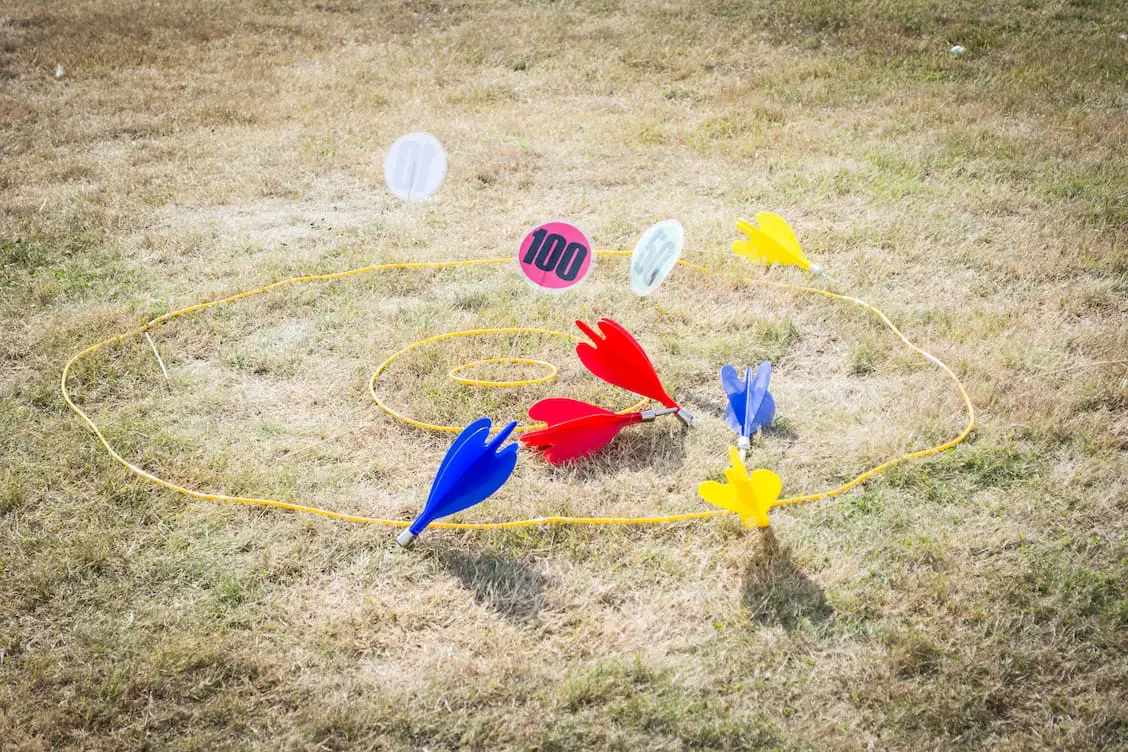This article was originally published in Urner Barry’s Reporter Quarterly Magazine.
The National Oceanic Atmospheric Administration’s (NOAA) Seafood Import Monitoring Program (SIMP) is the modern-day lawn dart. Envision it—excited, naive toymakers merge a distinctly indoor
game with outdoor fun on a grand scale. Enthusiastic elves whip themselves into a frenzy, and then the barely pressure-tested concept is sent to toy manufacturers to be readied for the holidays.
As it turns out, lawn darts don’t work that well. While they might be conceptually fun, they’re also very dangerous. And, ultimately, do more harm than good.
While you’re unlikely to be impaled by a flying Seafood Import Monitoring Program, expansion of the program could do more harm than good. It’s also a misdirected e ffort of federal programming, a compliance headache and a regulatory mess. SIMP was supposedly created as part of an e ffort to stop illegal, unreported and unregulated (IUU) fishing and seafood fraud, but the program falls short of its big, intended purpose.
NOAA Itself Says Simp Does Not Stop IUU
SIMP currently covers 13 species (such as shrimp, cod, tuna, mahi-mahi, and grouper) thought to be at risk of illegal, unreported, and unregulated fishing. Keep in mind the majority of shrimp is farmed, making this e ffort to stop illegal fishing almost nonsensical. What’s more, it’s a misnomer to suggest the program only covers a handful of products because these 13 categories include more than 1,100 unique species.
In its own report, released May 21, 2021, NOAA clearly states, “SIMP does not prevent or stop IUU fish and fish products from entering the U.S.” In fact, NOAA highlights that the “violations” are largely clerical, “most of the issues that have been found relate to issues apparent from the documents themselves (e.g., vessel permit dates do not match harvest dates, documents are missing).”
While groups, like Oceana and WWF, along with various voices on Capitol Hill continue to push for the expansion of SIMP, NOAA itself emphasizes that the agency remains “focused on maintaining the risk-based nature of SIMP.”
Calls for expanding the program to all species undercut this very clear focus on risk. So why do we continue to see misguided legislation pushing to expand an already flawed federal program? Could it be that NGOs are unwitting pawns in a game designed to not stop IUU, but to place non-tari ff barriers on imports? Your guess is as good as mine.
The National Fisheries Institute (NFI) and six leading associations representing the nation’s commercial seafood supply chain that employs 1.25 million Americans stated in a letter to Congressional leaders, “In attempting to respond to the challenge of Illegal, Unreported and Unregulated (“IUU”) fishing, the bill imposes unworkable regulatory mandates on industry, raises the costs and risks for American fishermen to sell their catch in the United States, and exposes U.S. exporters to retaliation in overseas markets, all without addressing the existing program’s lack of demonstrated success in deterring illegally harvested products from reaching U.S. ports.”
Costing U.S. seafood jobs, in search of an ill-conceived plan likely designed to impede imported competition, would be the real legacy of expanding SIMP.
Laws That Continue to Create Supply Chain Burdens
In an unprecedented time, where port congestion and shortages in transportation are causing severe disruptions, we need real solutions. Not a misguided effort that creates significant cost and administrative burdens for the entire value chain, thus impacting U.S. jobs and raising prices for American consumers.
The seafood community estimates it has spent over $50 million on SIMP regulatory and paperwork compliance for just the 13 species covered by the program, a significant economic burden on an industry working hard to feed Americans.
An expansion of SIMP would cost hundreds of millions of dollars in annual expense and impose a complex regulatory burden on domestic harvesters of the additional items, without having an impact on IUU (because little to no U.S. fish is caught illegally).
SIMP Was Flawed From the Start
Though initially framed as an attempt to combat IUU fishing among non-U.S. fleets, the program continues to miss its mark. SIMP was prompted largely by a single study published in May 2014. Relying almost entirely on confidential interviews, that study made wild assertions about the extent of IUU-harvested products in the U.S. market. Using the same approach, two of the authors made similar allegations in a 2018 study about IUU products harvested in the U.S. and found in the Japanese market. This methodology was so flawed that the publishing journal retracted it.
The seafood industry strongly supports efforts to combat IUU fishing, which includes support for the many federal initiatives underway to ensure the U.S. is a strong leader in promoting sustainable fisheries management and identifying measures that can reduce the rate of IUU fishing activity globally.
The U.S. has strong laws in place to protect the rights of workers across all industries, credible reporting on instances of human rights abuses in parts of the global seafood supply chain reminds us that not every country prioritizes or enforces such protections. SIMP is not, and was not designed to be, a silver bullet against IUU; moreover, federal resources to devote to SIMP are finite.
The focus of U.S. policy must be on constructing a streamlined SIMP program that is more effective, more efficient, and more carefully targeted towards the highest-risk sources of IUU products. One way to do that might be to scrap it and start over. Sort of like what they did with lawn darts.

